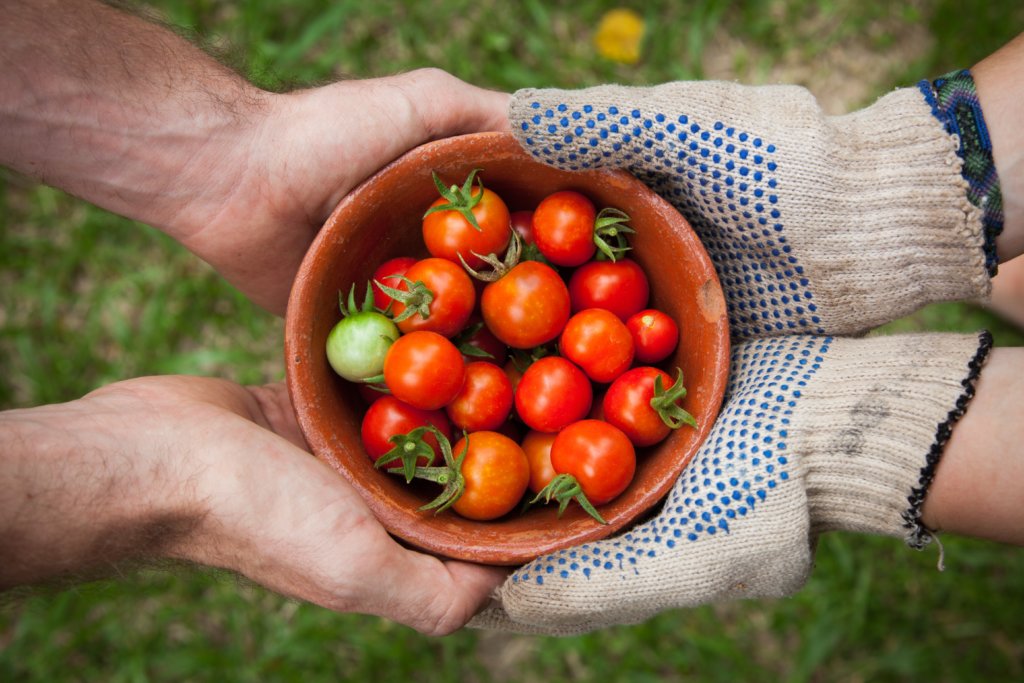I think it’s pretty clear I want to be famous. Not “get my picture taken while eating a hamburger in a car” famous, but “win awards and have people share my content” famous. I know fame doesn’t make anyone happy, I know the goal of my life is not fame, I know aiming for fame goes against all of my spiritual beliefs, and yet it’s still here.
I’ve wrestled with this aspect of myself for decades trying to reason with it, spin it, battle it, push it away. But it’s still here. On Wednesday, I listened to a radio show loosely about surrender and I burst into tears because I finally accepted this part of me. To surrender means to stop fighting and I stopped fighting this aspect of myself. I also started journaling about it, asking why I care so much.
I seek fame because I want to prove myself, I want to showcase my “enough-ness.” I spoke with a friend about this and he suggested I make a list of all the ways I’ll finally be enough. I’ll be enough when _____. I made my list: “I’ll be enough when I’m a bestselling author. I’ll be enough when I go on Oprah. I’ll be enough when a celebrity retweets me.” I kept going until I reached the point when I wrote, “I’ll be enough when I feel worthy.”
As if to hammer the point home, I listened to another radio show by Nancy Levin, who used to be the events coordinator at Hay House before she transitioned into writing and coaching. To paraphrase, she said nothing on the outside will make you feel worthy if you don’t feel worthy on the inside. I know this. In fact, I’ve written this. But when I look back at my post on self-worth from nearly nine years, I hear a lot of judgment. A lot of dismissing. I didn’t honor my desire then or now.
When I look at the basic philosophy of my spiritual tradition, I have more perspective. The philosophy states we take everything and channel it toward the divine. It sounds like a lovely sentiment, but what does that actually mean? I’m not sure I know, but what I’m starting to understand is I can’t run from anything, including my desire for fame. I can’t escape anything. Maybe to use everything as a vehicle toward my unification with a power greater than myself means first that I have to accept what is here in a loving, compassionate way.
This blogpost deals with my desire for fame, but the concept is applicable to anything. It could be the part of ourselves that’s scared of others, or is greedy, or ashamed, or whatever. We can’t pretend that side doesn’t exist as much as we’d like that to be the case. We have to work with what’s here in order to have any power over it. I’ve likely used this quote before, but Carl Jung said, “Until you make the unconscious conscious, it will direct your life and you’ll call it fate.” I’d rather be an active participant in my fate and the only way to do that it seems is to stop running from the things I don’t like.
I dream of a world where we accept all parts of ourselves with compassion. A world where we realize just because we don’t like something doesn’t mean it goes away. A world where we embrace our inherent tendencies and still work to transform them into something else. A world where we channelize them toward something greater than ourselves.
Another world is not only possible, it’s probable.
I had a dream the other night my sister, Rosie, and I slept in the same bed. She started hogging all the covers and I yanked them back from her and said, “No. You can’t take all the covers.” It’s not a dream based on reality because Rosie cares a lot about sharing, but nonetheless, it got me thinking about greed, especially as it relates to the world’s resources. A group of people are hogging almost all the resources leaving the rest of us shivering in the cold.
Peter Joseph said, “The value system disorder of rewarding, in effect, generally the most ruthless and selfish in our society, both by financial means and then by public adoration and respect, is one of the most pervasive and insidious consequences of the incentive system inherent to the capitalist model.”
I’m with you Peter. By and large, we as a society seem to be OK with greed as long as it comes from a place of power. No one bats an eye when we hear about corrupt politicians or businessmen engaging in shady backroom deals. In fact, I think we expect it. We’ve become so used to greed and selfishness it seems normal. In a way, it is normal. We all have the same tendencies within us. In yogic philosophy, these tendencies are called vrttis.
My spiritual teacher says, “The correct way to get rid of depraving tendencies is not to repeat to oneself that I shall avoid this tendency or that. Suppression is not the proper way to weaken these tendencies. Do not suppress, but channelize. Humans are psychic beings. Reconvert the psychic into the spiritual. Let elevating tendencies be converted into a spiritual wave.”
My point in using that quote is to say yes, we all have the capacity for cruelness, for greed, for selfishness, but that doesn’t mean we say, “Oh well. It’s natural. Gotta let it do it’s thing.” No. As human beings we are constantly evolving and that means using rationality, it means channelizing our natural propensities toward something else. If I want to strangle a cat, instead of acting on that impulse, it’s better for me to rip up a phone book, or scream into a pillow. The same is true, and can be true, for greed.
I realize not everyone is interested in converting their natural impulses, that’s fine, but it means we as a society have to impose laws and sanctions. We already have consequences for things like murder and theft, why don’t we have consequences for hoarding wealth? Why do we instead encourage it? I already know the answer to that question, but I’d like to go back to my dream.
If Rosie and I were still children living at home, what would happen if we started bickering about the bed covers? Our parents would come in and either make us share or give us separate bed covers. They would come up with a solution – they wouldn’t say, “Oh well. It’s human nature to be greedy Rebekah, get over it. You’ll just have to shiver.”
What I’m proposing here is that we all start acting like parents, coming up with solutions that work for all of us. I’m proposing that we act like adults and say, “No” to people who want to hoard all the covers, so to speak, and instead encourage a more fair share.
I dream of a world where we work together to curb the natural impulse toward greed. A world where we say “No” to hoarding wealth. A world where we understand we can channelize our natural tendencies into something else. A world where we give people their fair share.
Another world is not only possible, it’s probable.
I feel a little strange writing this post on Rosh Hashanah eve, the Jewish New Year, for those of you who don’t know. The New Year is a time of hope and celebration, optimism for what’s ahead, but this post is about temperance.
For the past month, I’ve been getting in touch with my propensity to hope without any evidence. To hope things will change based on nothing more than a whim. September painfully brought me back down to earth, not because anything happened, but rather because I realized how damaging it is to have unbridled optimism.
For many years, I hoped people in my life would be different, that they would change their behavior, not based on any indication they had a desire to change, but rather because I wanted them to change. Last month in addition to accepting my health is what it is, I also started accepting people as they are. There’s a version of the serenity prayer applicable in this instance: “God, grant me the serenity to accept the people I cannot change, the courage to change the one I can, and the wisdom to know that one is me.”
As an optimistic, idealistic person, learning to temper my hope has been painful. Learning to live in reality and accept that this is the way things are, has been a tough pill to swallow. But on the other hand, I’m not so disappointed anymore. When someone responds the way they normally do, instead of feeling crushed, I feel neutral.
This post focuses on other people, but the case is also true for me. There are some things about myself that are not going to change, no matter how much I pray, say affirmations, or wish they were otherwise. And instead of feeling upset, I feel at peace.
I’m not saying hope is a bad thing because it’s not. Hope is a powerful virtue when it’s applied properly. There are many people doing great things in the world, and they give me hope for the future. That sort of hope is grounded, right-sized.
My spiritual teacher talks about harmony and equilibrium as most spiritual teachers do. It wasn’t until this last month that I realized virtues also apply. I must strike a balance between hope and resignation, optimism and pessimism, faith and doubt. I used to think resignation, pessimism, and doubt should be avoided at all costs, but now I’m realizing they have their place, they serve a purpose. They help me live in reality and that’s not such a bad thing.
I dream of a world where we temper our virtues. A world where we base our hope on evidence. A world where we strive for harmony and equilibrium, understanding that’s how we know true peace.
Another world is not only possible, it’s probable.


